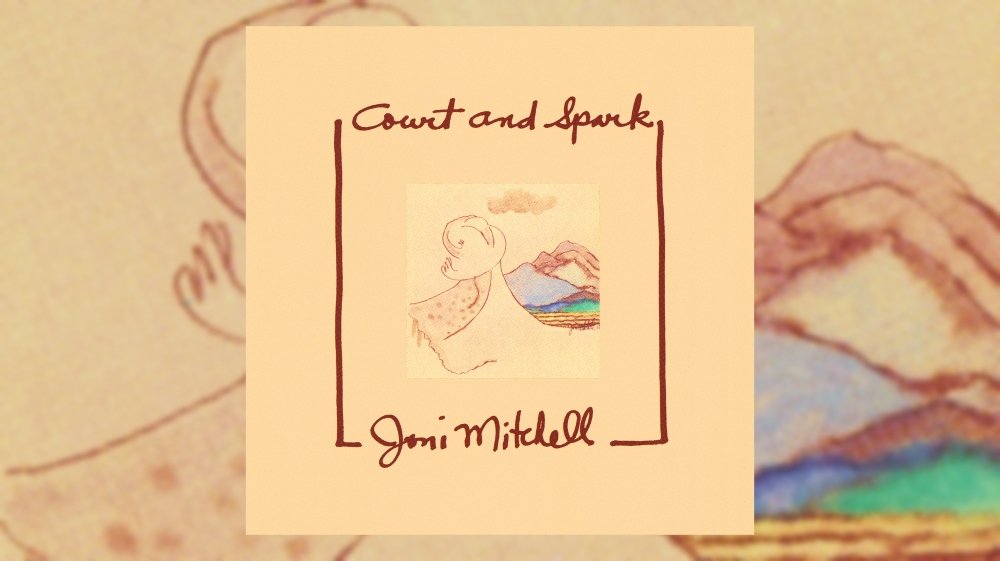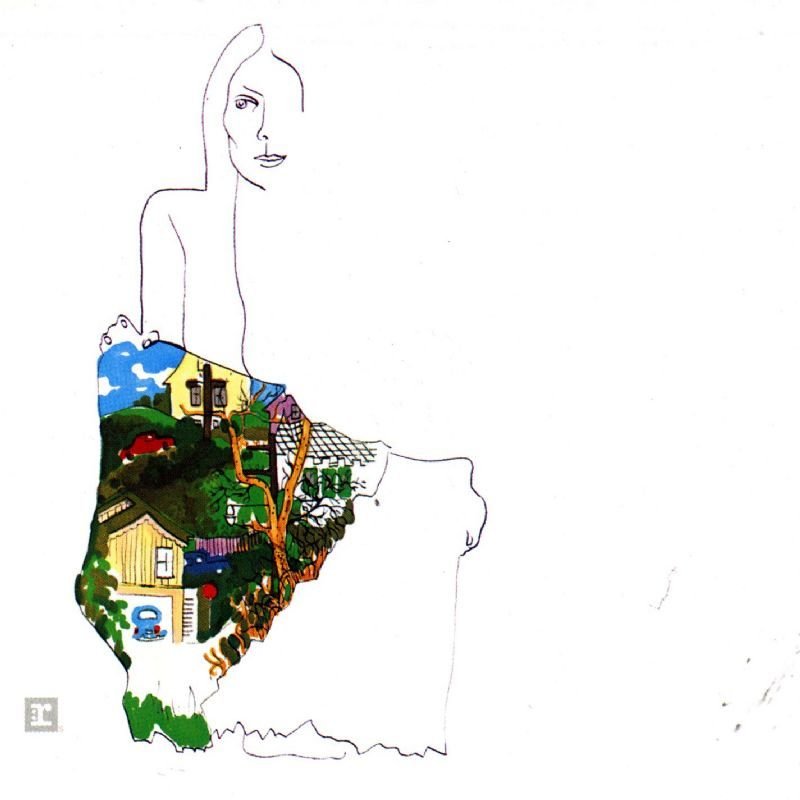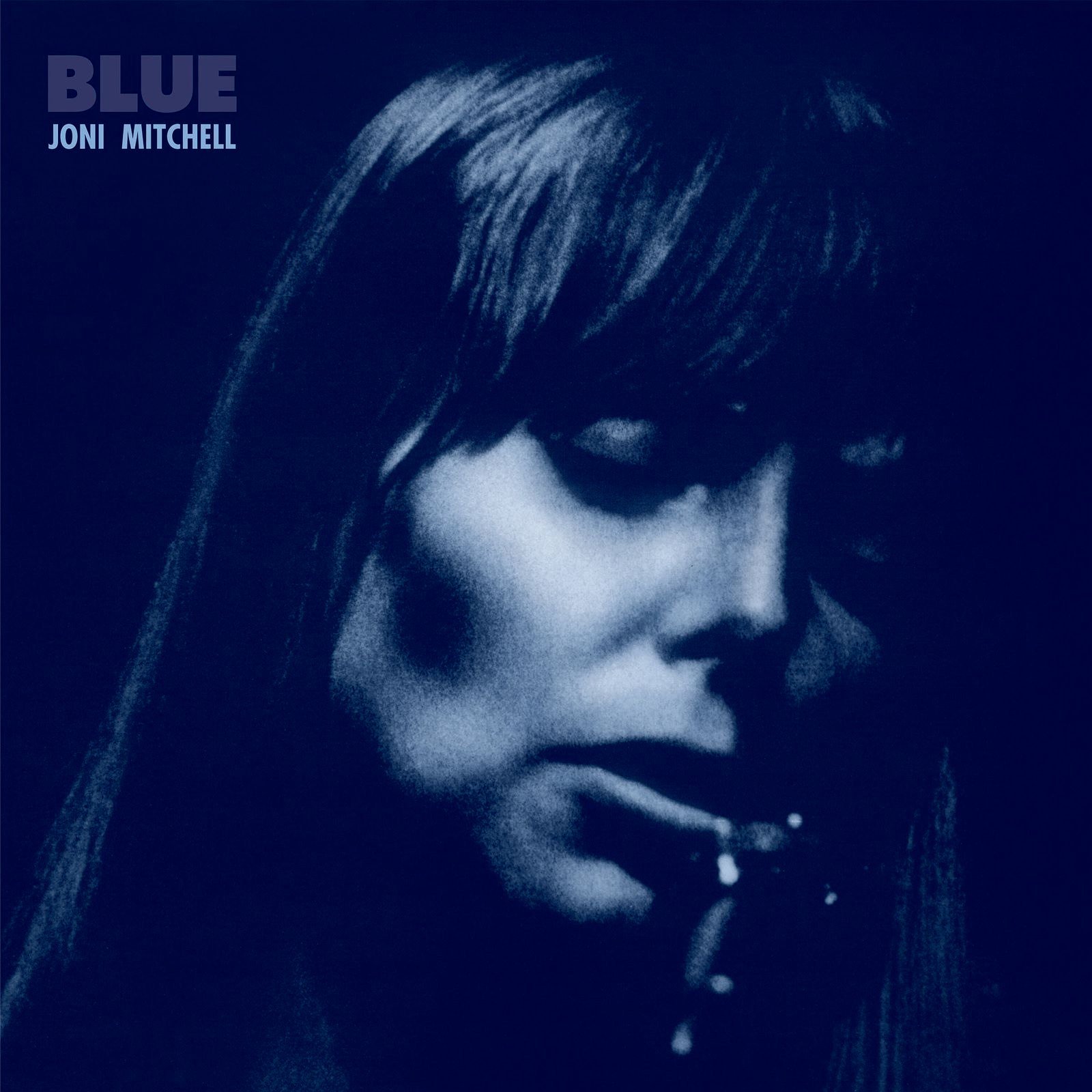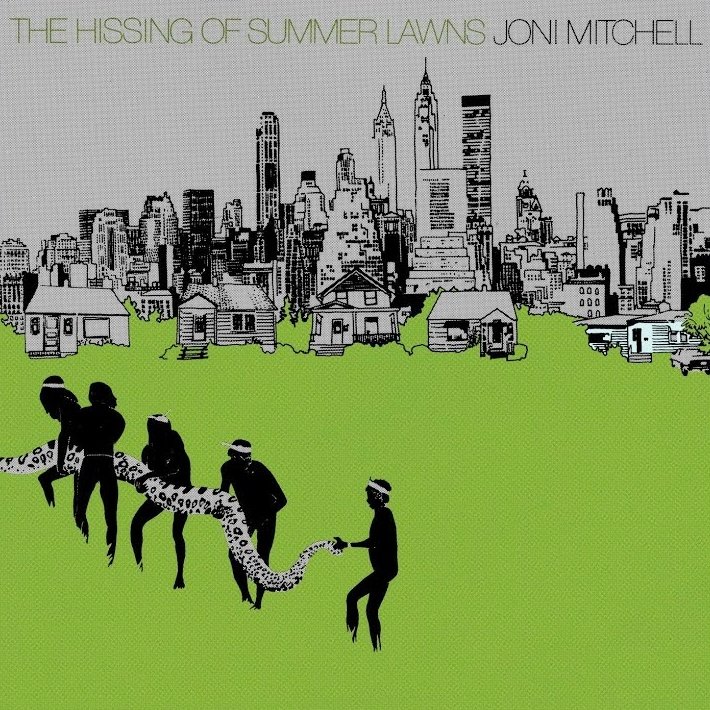Happy 50th Anniversary to Joni Mitchell’s sixth studio album Court and Spark, originally released January 17, 1974.
Joni Mitchell remains one of the greatest feminist artists of all time. She leads the way in freedom and is “too busy being free” for anyone to hold her down these days, even at 80. Her catalog is a collection of innovation in music, wondering aloud what it is to be a woman in love and on a journey through skepticism and delight. Mitchell’s 1974 album Court and Spark turns 50 this week.
Recorded after a year-long hiatus from releasing any music, the first time Mitchell did this since her 1968 debut Songs To A Seagull, Court and Spark is her most successful album. Many fans favorite her magnum opus Blue (1971) but Court and Spark is a completely different animal. After having changed record labels in 1972 to Asylum, Mitchell started experimenting with jazz, a genre she’s since become famous for renewing in her own way.
The title track opens with subtle piano. Mitchell is credited to all the piano and acoustic guitar on the record. She co-produced Court and Spark with Henry Lewy, who also produced and collaborated with her in-studio on four of her next five records. Traditionally, Mitchell produced and controlled the production of all her LPs, remaining in control whether it’s with the instruments or the mastering of her albums.
Her power is exemplified by her distinct vocal performance. Unmatched by her range, the pause and punch of Mitchell’s delivery helps turn her songs into stories, her lines to poetry. Move with them swift and slow and feel her sway with you.
“Court and Spark” is about a passing encounter with a busker on the street. Mitchell has a unique ability to take random moments of life and turn them into prolonged experience by relating to them. She exists in these songs, as if no other medium made quite as much sense to her (although painting arguably represents a close second).
Court and Spark is home to two of Mitchell’s biggest radio hits, “Help Me” and “Free Man In Paris.” The textures of these songs, the first with saxophone, the second with bass played by Wilton Felder, co-founder of L.A. jazz group The Crusaders, are what make them memorable and endlessly playable. Also in the background on “Free Man In Paris” are vocals by David Crosby and Graham Nash. They’re so subtle it almost sounds like Mitchell’s vocals layered upon themselves.
On “Free Man In Paris,” Mitchell shapes her lines take when she breathes and suspends through them are her own. To imitate her vocal sound is to struggle. No other vocalist can take on her vibrato, accompanied of course by unusual guitar tunings and open piano work.
Listen to the Album:
On “People’s Parties” she manages to sing about herself from a distance. “Laughing and crying / you know it’s the same release” she sings about the woman at a party who’s makeup is running down, as she’s crying on someone’s knee. Mitchell echoes “laughing it all away” to close out the track before the piano comes in. First it sounds like the end, and then it’s just the beginning of the next song, “The Same Situation.” A song that sounds as if it starts in the middle, “The Same Situation” is another selfless look at herself: “I said ‘Send me somebody / Who’s strong, and somewhat sincere / With the millions of the lost and lonely ones / I called out to be released / Caught in my struggle for higher achievement / And my search for love / That don’t seem to cease.”
Side two opens with “Car On a Hill” and Tom Scott’s saxophone. Scott is credited with all woodwinds on Court and Spark. A member of The Blues Brothers, he later led L.A. Express, a jazz fusion ensemble that later served as Mitchell’s backing band, most famously for her double live LP Miles of Aisles also released in 1974. “Car On a Hill” is yet another afternoon of boredom turned to song, as she waits “for her sugar to show.”
The piano takes us on another, slow turn on “Down To You” as “lovers and styles of clothes come and go.” In the same breath, Mitchell declares her object of affection “a kind person and a cold person too.” “You settle for less than fascination,” she sings, and then in the next breath, “A few drinks later you’re not so choosy.” Another passing moment and discovery of fleeting passion on “Down To You” where the long bridge morphs the melody and the piano mingles with woodwinds to make a new kind of chorus.
Mitchell is a master of folk music. The first songs she wrote, “Urge For Going,” “Both Sides Now,” and “The Circle Game,” were recorded by other artists allowing her to sign with Reprise Records in the first place. “Just Like This Train” moves with the same waver of the boxcars she sings about with a flutter in her voice. It’s the drums that keep the pacing here. John Guerin was a leader of jazz-rock percussion and his contributions to Court and Spark helped cement the base of Mitchell’s new foundations in jazz.
“Raised on Robbery” is another folk song about a man drinking alone in a hotel bar where a woman in lacy sleeves finds him. Only it’s no slow churning chug. Robbie Robertson plays electric guitar and Joe Sample, co-founder of The Crusaders along with Felder, plays electric piano and clavinet. It has a boogie groove broken down by more saxophone. Joni slides her voice up and down, her imagination filling in the conversation of the two players of the song. Her voice glides even more on “Troubled Child,” where she’s joined by a muted trumpet giving it the feel of lounge bop.
Court and Spark closes with a song of swing. “Twisted” is a short and sweet tune, a cover of an old song from the ‘50s mocking psychoanalysis. Cheech and Chong even show up in the background chatter, rounding out a great list of personnel. With a second listen it could be Mitchell’s cheeky nod to her own talent: she has two heads and everyone knows two heads are better than one.
Enjoying this article? Click/tap on the album covers to explore more about Joni Mitchell:
As the decades pass, Joni Mitchell fans are harder to come by. The vocal vibrato, slides, and range have notoriously turned people away from her records. Sonically, she isn’t for everyone, but her ethos of individuality is a flag women everywhere fly high. (Lucky for me, I grew up with parents singing along to every word on every record, and with a sister who idolized her through high school. Mitchell’s records are like home.)
Mitchell’s place in history as a songwriter and composer is outside the realm of “normal.” And Court and Spark is anything but. If you’re new to her, consider it a starting point. You’ll find yourself gliding all over her records soon enough.
LISTEN:
Editor's note: this anniversary tribute was originally published in 2019 and has since been edited for accuracy and timeliness.





